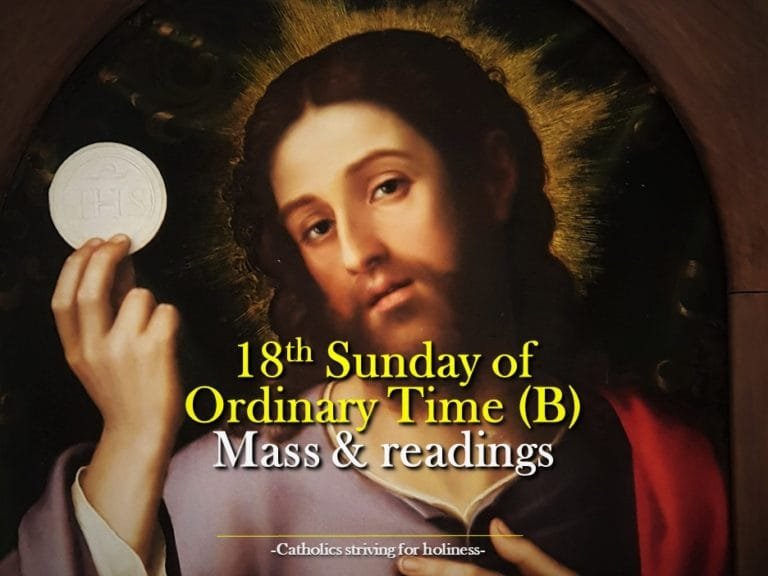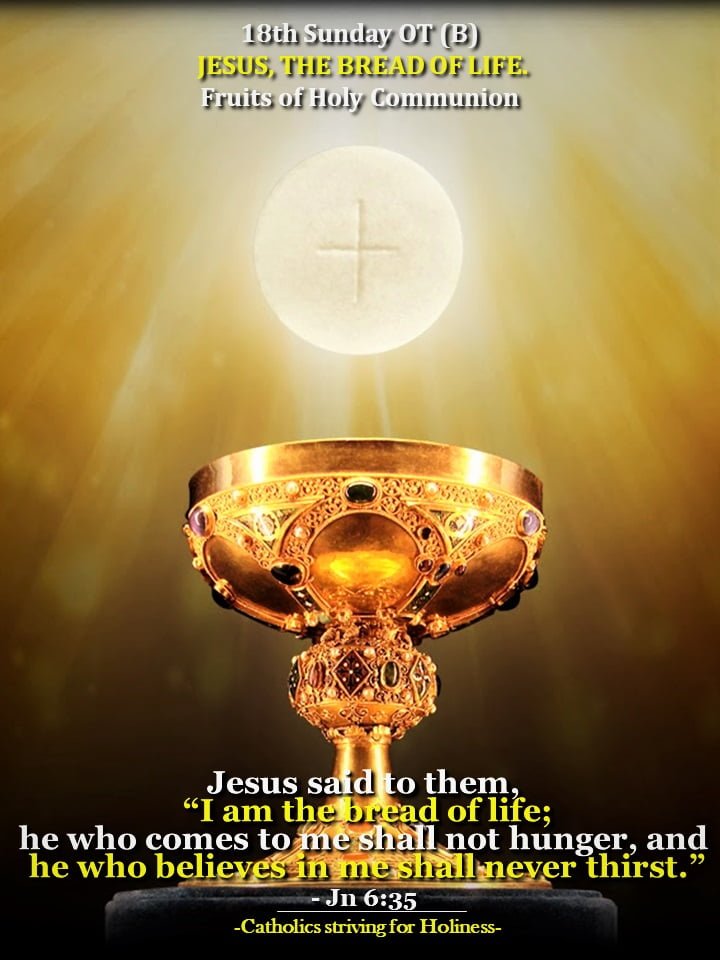POPE FRANCIS ON THE 18TH SUNDAY IN ORDINARY TIME YEAR B
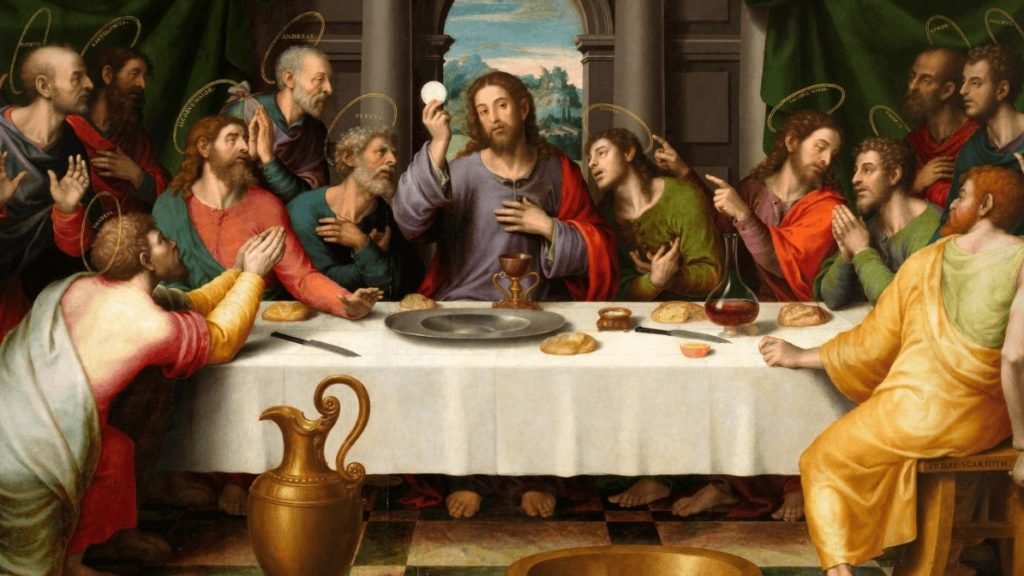
ANGELUS
Saint Peter’s Square
Sunday, 4 August 2024
________________________________________
Dear brothers and sisters, happy Sunday!
Today the Gospel tells us about Jesus who, after the miracle of the loaves and fishes, invites the crowds who are looking for him to reflect on what took place to understand the meaning of it (cf. Jn 6:24-35).
They had eaten the food that was shared and seen how even with few resources all had been fed and had their fill through the generosity and courage of a young man who made available what he had with others. (cf. Jn 6:1-13). The sign was clear: if everyone gives to others what they have, with God’s help, even with little everyone can have something. Let us not forget this: if one gives to others what one has, with God’s help, even with little everyone can have something.
The crowds did not understand: they mistook Jesus for some kind of magician and went back to look for him, hoping he would repeat the miracle as if it were magic (cf. v. 26).
They were the protagonists of an experience in their journey, but they did not grasp its significance: their attention focused only on the loaves and fishes, the actual food that finished immediately. They did not realise that this was only an instrument through which the Father, while satisfying their hunger, revealed something far more important to them. And what did the Father reveal to them? The path of life that lasts forever and the taste of bread that satisfies beyond any measure. The true bread, in short, was and is Jesus, his beloved Son made man (cf. v. 35), who came to share our poverty in order to lead us through it to the joy of full communion with God and with our brothers and sisters (cf. Jn 3:16).
Material things do not give fullness to life. They help us go forward and are important, but they do not fulfill our lives. Only love can do that (cf. Jn 6:35). And for this to happen, the path to take is that of charity which keeps nothing for itself, but shares everything. Love shares everything.
And does this not happen also in our own families? We can see it. Let us think of parents who struggle all their lives to raise their children well and leave them something for the future. How beautiful when this message is understood, and the children are grateful and in turn become supportive of each other like brothers and sisters! How sad, on the other hand, when they fight over inheritance – I have seen so many cases and it is sad – and they are fighting each other and perhaps they do not speak to each other again for years! The message of a father and a mother, their most precious legacy, is not money. It is the love with which they give their children everything they have, just as God does with us, and in this way, they teach us to love.
Let us ask ourselves, then: what kind of relationship do I have with material things? Am I a slave to them, or do I use them freely as instruments to give and receive love? Am I able to say “thank you” to God and my brothers and sisters for the gifts I have received. And do I know how to share them with others?
May Mary, who gave Jesus her whole life, teach us to make everything an instrument of love.
Source: https://www.vatican.va/content/francesco/en/angelus/2024/documents/20240804-angelus.html
EMPHASIS MINE.
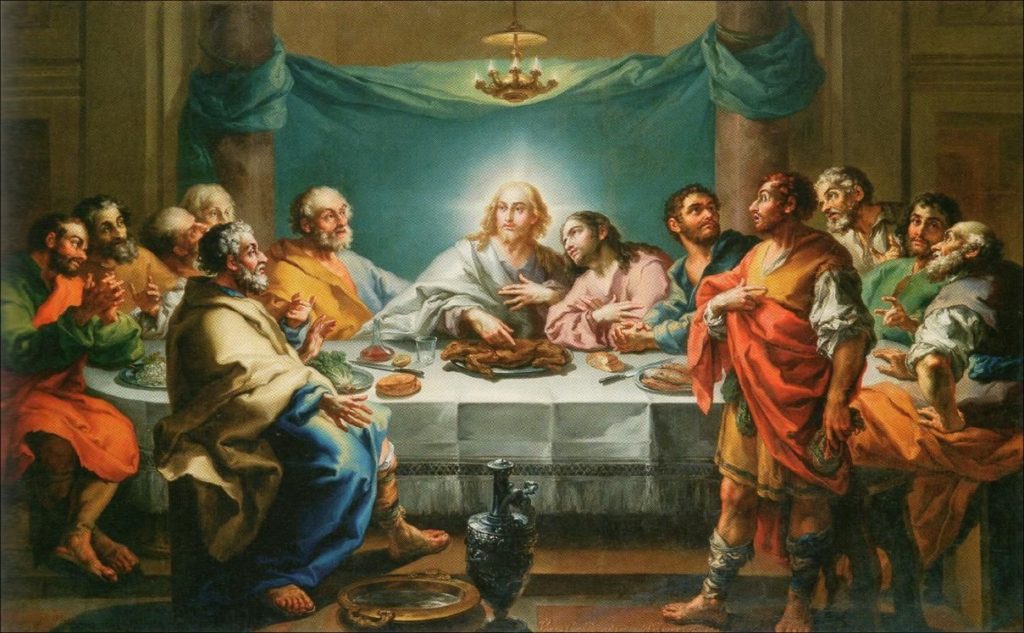
ANGELUS
Saint Peter’s Square
18th Sunday in Ordinary Time year B, 1st August 2021
_________________________________
Dear brothers and sisters, buongiorno!
The initial scene of the Gospel in today’s liturgy (see Jn 6,24-35) shows us some boats moving towards Capernaum: the crowd is going to look for Jesus. We might think that this is a very good thing, yet the Gospel teaches us that it is not enough to seek God; we must also ask why we are seeking him. Indeed, Jesus says: “You seek me, not because you saw signs, but because you ate your fill of the loaves” (v. 26). The people, in fact, had witnessed the miracle of the multiplication of the loaves, but they had not grasped the meaning of that gesture: they stopped at the external miracle, they stopped at the material bread: there only, without going beyond, to the meaning of this.
Here then is a first question we can ask ourselves: why do we seek the Lord? Why do I seek the Lord? What are the motivations for my faith, for our faith? We need to discern this, because among the many temptations we encounter in life, among the many temptations there is one that we might call idolatrous temptation. It is the one that drives us to seek God for our own use, to solve problems, to have thanks to Him what we cannot obtain on our own, for our interests. But in this way faith remains superficial and even, if I may say so, faith remains miraculous: we look for God to feed us and then forget about Him when we are satiated. At the centre of this immature faith is not God, but our own needs. I think of our interests, many things … It is right to present our needs to God’s heart, but the Lord, who acts far beyond our expectations, wishes to live with us first of all in a relationship of love. And true love is disinterested, it is free: one does not love to receive a favour in return! This is self-interest; and very often in life we are motivated by self-interest.
A second question that the crowd asks Jesus can help us: “What must we do, to be doing the works of God?” (v. 28). It is as if the people, provoked by Jesus, were saying: “How can we purify our search for God? How do we go from a magical faith, which thinks only of our own needs, to a faith that pleases God?” And Jesus shows the way: He answers that the work of God is to welcome the One whom the Father has sent, that is, welcoming Himself, Jesus. It is not adding religious practices or observing special precepts; it is welcoming Jesus, it is welcoming Him into our lives, living a story of love with Jesus. It is He who will purify our faith. We are not able to do this on our own. But the Lord wants a loving relationship with us: before the things we receive and do, there is Him to love. There is a relationship with Him that goes beyond the logic of interest and calculation.
This applies to God, but it also applies to our human and social relationships: when we seek first and foremost the satisfaction of our needs, we risk using people and exploiting situations for our own ends. How many times have we heard it said of someone; “But he uses people and then forgets about them”? Using people for one’s own gain: this is bad. And a society that puts interests instead of people at its centre is a society that does not generate life. The Gospel’s invitation is this: rather than being concerned only with the material bread that feeds us, let us welcome Jesus as the bread of life and, starting out from our friendship with Him, learn to love each other. Freely and without calculation. Love given freely and without calculation, without using people, freely, with generosity, with magnanimity.
Let us now pray to the Holy Virgin, She who lived the most beautiful story of love with God, that she may give us the grace to open ourselves to the encounter with her Son.
Source: https://www.vatican.va/content/francesco/en/angelus/2021/documents/papa-francesco_angelus_20210801.html
EMPHASIS MINE
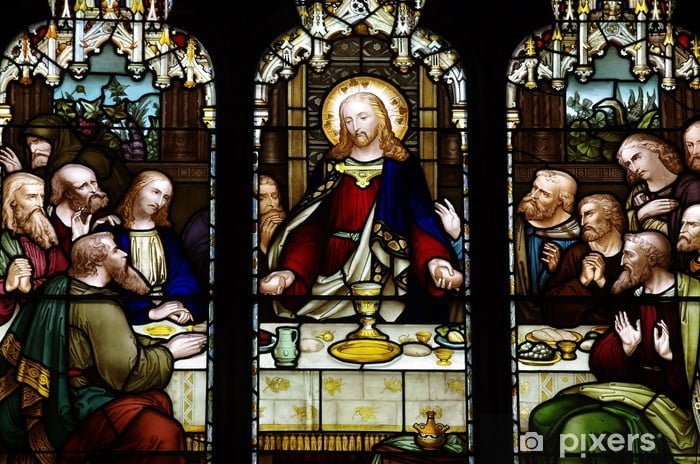
ANGELUS
Saint Peter’s Square
18th Sunday in Ordinary Time year B, 5 August 2018
Dear Brothers and Sisters, Good morning!
Over the last few Sundays the liturgy has presented us with the image filled with Jesus’ tenderness reaching out to the crowd and its needs. In today’s Gospel passage (cf. Jn 6:24-35) the perspective changes. The crowd whose hunger Jesus has satisfied begins to seek him anew and goes to encounter him. But for Jesus, it is not enough that people seek him. He wants people to know him. He wishes that the search for him and the encounter with him go beyond the immediate satisfaction of material needs. Jesus came to bring us something more, to open our lives to a wider horizon than the daily concerns of eating, clothing ourselves, career and so on. Thus, turning to the crowd, he exclaims: “you seek me, not because you saw signs but because you ate your fill of the loaves (v. 26)”. In this way, he encourages the people to go a step further and to question themselves on the significance of the miracle, and not simply to take advantage of it. Indeed, the multiplication of the loaves and the fish is a sign of the great gift the Father has given to humanity, which is Jesus himself!
He, the true “bread of life” (v. 35), wants to satisfy not just the bodies but also the souls, giving the spiritual food that can satisfy profound hunger. This is why he invites the crowd to obtain not the food which perishes, but that which endures for eternal life (cf. v. 27). It is the food that Jesus gives to us every day: his Word, his Body, his Blood. The crowd listens to the Lord’s invitation, but does not understand its meaning — as often happens to us — and asks him: “What must we do, to be doing the works of God?” (v. 28). Those who are listening to Jesus think that he is asking them to observe the precepts in order to obtain more miracles like the multiplication of the loaves. This is a common temptation; to reduce religion to only the practice of its laws, projecting onto our relationship with God the image of the relationship between servants and their master: servants must carry out the tasks that the master assigns to them in order to enjoy his benevolence. We all know this. Therefore, the crowd wants to know from Jesus which actions it must perform in order to please God. But Jesus’ reply is unexpected: “This is the work of God, that you believe in him whom he has sent” (v. 29). Today, these words are also addressed to us: God’s work does not consist so much in “doing” things, but in “believing” in Him whom He sent. This means that faith in Jesus allows us to carry out God’s works. If we allow ourselves to be involved in this loving and trusting relationship with Jesus, we will be able to perform good works that exude the fragrance of the Gospel for the good and needs of our brothers and sisters.
The Lord invites us not to forget that, if it is necessary to worry about bread, it is even more important to nurture our relationship with Him, to strengthen our faith in Him, who is the “bread of life” who came to satisfy our hunger for truth, our hunger for justice and our hunger for love. On the day in which we remember the dedication of the Basilica of Saint Mary Major in Rome, may the Virgin Mary, the Salus Populi Romani, support us in our journey of faith and help us to joyfully surrender ourselves to God’s design for our lives.
Source: https://www.vatican.va/content/francesco/en/angelus/2018/documents/papa-francesco_angelus_20180805.html
EMPHASIS MINE
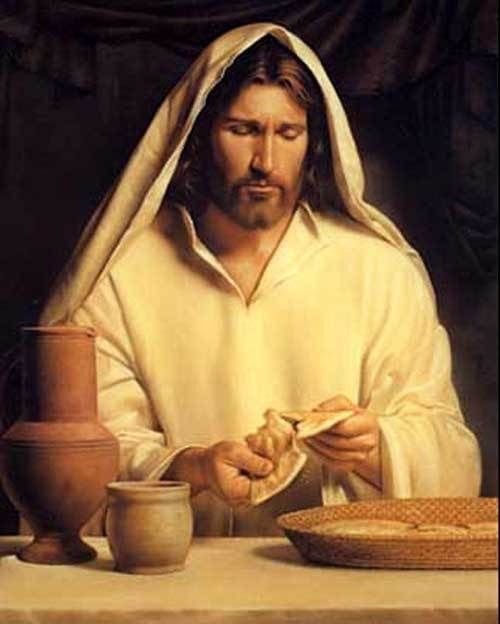
ANGELUS
Saint Peter’s Square
18th Sunday B, 2 August 2015
Dear Brothers and Sisters, Good morning!
This Sunday the Reading of Chapter Six of the Gospel according to John continues. After the multiplication of the loaves, the people went in search of Jesus and finally found him near Capernaum. He was well aware of the motive for their great enthusiasm in seeking him and he made this clear to them: “you seek me, not because you saw signs, but because you ate your fill of the loaves” (Jn 6:26). In fact, those people followed him for the material bread which had placated their hunger the previous day, when Jesus had performed the multiplication of the loaves; they had not understood that that bread, broken for so many, for the multitude, was the expression of the love of Jesus himself. They had given more meaning to that bread than to its donor. Before this spiritual blindness, Jesus emphasizes the necessity of going beyond the gift, to discover, come to know the donor. God himself is both the gift and the giver. Thus from that bread, from that gesture, the people can find the One who gives it, who is God. He invites them to open up to a perspective which is not only that of the daily need to eat, dress, achieve success, build a career. Jesus speaks of another food. He speaks of a food which is incorruptible and which is good to seek and gather. He exhorts: “Do not labor for the food which perishes, but for the food which endures to eternal life, which the Son of man will give to you” (v. 27). That is to say, seek salvation, the encounter with God.
With these words, he seeks to make us understand that, in addition to physical hunger man carries within him another hunger — all of us have this hunger — a more important hunger, which cannot be satisfied with ordinary food. It is a hunger for life, a hunger for eternity which He alone can satisfy, as he is “the bread of life” (v. 35). Jesus does not eliminate the concern and search for daily food. No, he does not remove the concern for all that can make life more progressive. But Jesus reminds us that the true meaning of our earthly existence lies at the end, in eternity, it lies in the encounter with Him, who is gift and giver. He also reminds us that human history with its suffering and joy must be seen in a horizon of eternity, that is, in that horizon of the definitive encounter with Him. And this encounter illuminates all the days of our life. If we think of this encounter, of this great gift, the small gifts of life, even the suffering, the worries will be illuminated by the hope of this encounter. “I am the bread of life; he who comes to me shall not hunger, and he who believes in me shall never thirst” (v. 35). This refers to the Eucharist, the greatest gift that satisfies the soul and the body. Meeting and welcoming within us Jesus, “Bread of Life”, gives meaning and hope to the often winding journey of life. This “Bread of Life” is given to us with a task, namely, that we in our turn satisfy the spiritual and material hunger of our brothers, proclaiming the Gospel the world over. With the witness of our brotherly and solidary attitude toward our neighbour, we render Christ and his love present amid mankind.
May the Blessed Virgin sustain us in the search and sequela of her Son Jesus, the true bread, the living bread which does not spoil, but which endures for eternal life.
Source: https://www.vatican.va/content/francesco/en/angelus/2015/documents/papa-francesco_angelus_20150802.html
EMPHASIS MINE
Copyright © Dicastero per la Comunicazione – Libreria Editrice Vaticana
SEE AS WELL:
Stay updated: subscribe by email for free TO OUR NEW WEBSITE catholicsstrivingforholiness.org (PUT YOUR EMAIL IN THE SUBSCRIBE WIDGET).
If you need some resources regarding a particular topic, feel free to use the search WIDGET which has access to thousands of posts, categories and tags on Catholic spirituality.
Cordially inviting you as well to follow www.fb.com/Catholicsstrivingforholiness. and share our posts to help more people in their Christian faith and life.
Thanks and God bless you and your loved ones! Fr. Rolly Arjonillo.
